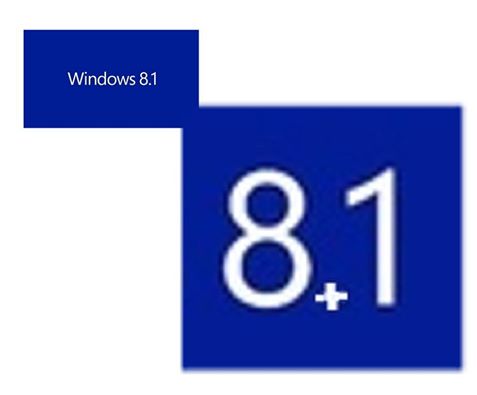There are quite a few theories floating around out there as to why Microsoft decided to name the latest version of its flagship operating system Windows 10, skipping over Windows 9. On Tuesday, the company unveiled the name and showed off a brief demo of the OS at a press event in San Francisco. The leap from Windows 8 to Windows 10 easily stole the spotlight from any visual design and developmental changes Microsoft has baked in to the product.
So what's the deal? On the surface, it appears to be smart marketing. The Windows 8 brand has been mired in controversy for the last two years stemming from Microsoft's bold yet unfamiliar design language and functionality decisions. So why not scrap any association with an entire numeric leap?
Other theories are that there are 10 major consumer releases of Windows, making this a celebration of that progress, while some feel it should have been called Windows 11 in that case. Some think Microsoft may make future Windows releases incremental, and thus free, after Windows 10 -- the same strategy Apple employed when it switched from numerals to feral cats after the release of Mac OS X. That theory has been bolstered by reports earlier this week stating that Andreas Diantoro, the president of Microsoft Indonesia, reportedly said the company was planning on making its next version of Windows free to current Windows 8 users. (The company declined to talk Windows 10 business models yesterday.)
Yet no explanation seems to come close to matching that of a self-described Microsoft developer who goes by the name cranbourne on the social news site Reddit. The user points the finger at Microsoft's almost 20-year-old releases that helped make the software maker a household name during the rise of the PC:
Microsoft dev here, the internal rumours are that early testing revealed just how many third party products that had code of the form
if(version.StartsWith("Windows 9")) { /* 95 and 98 */ } else {
and that this was the pragmatic solution to avoid that.
"Having worked on the Windows compatibility team before, I have no difficulty believing this," wrote user richkzad in response. There are in fact examples of this on publicly available code repositories.
Read more: http://www.cnet.com/news/is-this-why-microsoft-named-it-windows-10/
So what's the deal? On the surface, it appears to be smart marketing. The Windows 8 brand has been mired in controversy for the last two years stemming from Microsoft's bold yet unfamiliar design language and functionality decisions. So why not scrap any association with an entire numeric leap?
Other theories are that there are 10 major consumer releases of Windows, making this a celebration of that progress, while some feel it should have been called Windows 11 in that case. Some think Microsoft may make future Windows releases incremental, and thus free, after Windows 10 -- the same strategy Apple employed when it switched from numerals to feral cats after the release of Mac OS X. That theory has been bolstered by reports earlier this week stating that Andreas Diantoro, the president of Microsoft Indonesia, reportedly said the company was planning on making its next version of Windows free to current Windows 8 users. (The company declined to talk Windows 10 business models yesterday.)
Yet no explanation seems to come close to matching that of a self-described Microsoft developer who goes by the name cranbourne on the social news site Reddit. The user points the finger at Microsoft's almost 20-year-old releases that helped make the software maker a household name during the rise of the PC:
Microsoft dev here, the internal rumours are that early testing revealed just how many third party products that had code of the form
if(version.StartsWith("Windows 9")) { /* 95 and 98 */ } else {
and that this was the pragmatic solution to avoid that.
"Having worked on the Windows compatibility team before, I have no difficulty believing this," wrote user richkzad in response. There are in fact examples of this on publicly available code repositories.
Read more: http://www.cnet.com/news/is-this-why-microsoft-named-it-windows-10/
